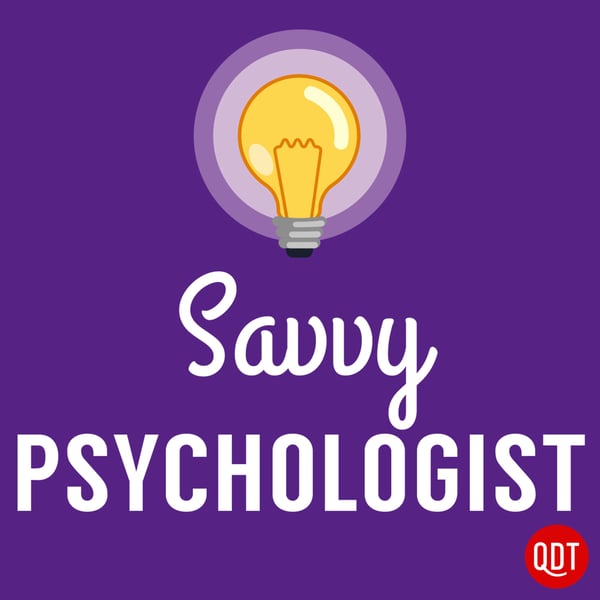Oversharing: When can opening up go too far?
Savvy Psychologist
Macmillan Holdings, LLC
4.7 • 1.4K Ratings
🗓️ 30 April 2025
⏱️ 9 minutes
🧾️ Download transcript
Summary
Transcript
Click on a timestamp to play from that location
| 0:00.0 | If you've ever walked away from a conversation or shut down your laptop after a post and thought, |
| 0:09.0 | why did I say all that? You're not alone. Oversharing is a deeply human impulse. As a psychologist, I've seen it in therapy sessions, on social media, in workplaces, and in nascent relationships. |
| 0:23.4 | And while opening up can be healing, oversharing often leaves people feeling exposed, anxious, and |
| 0:30.7 | regretful. So why do we do it and how can we stop? Welcome back to savvy psychologist. I'm your host, Dr. Monica |
| 0:40.2 | Johnson. Every week on this show, I'll help you face life challenges with evidence-based approaches, |
| 0:46.7 | a sympathetic ear, and zero judgment. Let's talk about some of the psychology behind |
| 0:53.6 | TMI's or intimacy vomit, as you will. |
| 0:58.0 | The first is the need for connection. |
| 1:01.7 | Humans are hardwired for connection. |
| 1:04.8 | According to social penetration theory, relationships deepen through gradual self-disclosure. |
| 1:14.5 | The problem? In a fast-paced instant gratification culture, we sometimes skip the gradual part. Penetration, regardless of type, |
| 1:22.1 | should move in a manner that is welcoming for all involved. If you slide into home base without spending enough time on the ones, |
| 1:30.1 | twos, and threes, you're likely to strike out. |
| 1:33.8 | The second thing to talk about is emotional flooding. |
| 1:39.1 | When we're overwhelmed, whether with excitement, sadness, or stress, |
| 1:46.8 | we're more likely to engage in what we psychologists call emotional dumping. Research shows that strong emotions impairs the brain's |
| 1:54.7 | prefrontal cortex, which handles impulse control and decision-making. In the moment, oversharing feels like relief. |
| 2:05.1 | The same way that picking at a pimple or a scab can be, |
| 2:08.4 | however, like your dermatologist always tries to warn you about, |
| 2:12.5 | it will likely leave a scar and then you have to spend six months dealing with it. |
| 2:18.1 | Next is anxiety and insecurity. |
| 2:22.9 | People with social anxiety or low self-esteem may overshare as a way to seek reassurance or validation. |
... |
Please login to see the full transcript.
Disclaimer: The podcast and artwork embedded on this page are from Macmillan Holdings, LLC, and are the property of its owner and not affiliated with or endorsed by Tapesearch.
Generated transcripts are the property of Macmillan Holdings, LLC and are distributed freely under the Fair Use doctrine. Transcripts generated by Tapesearch are not guaranteed to be accurate.
Copyright © Tapesearch 2025.

